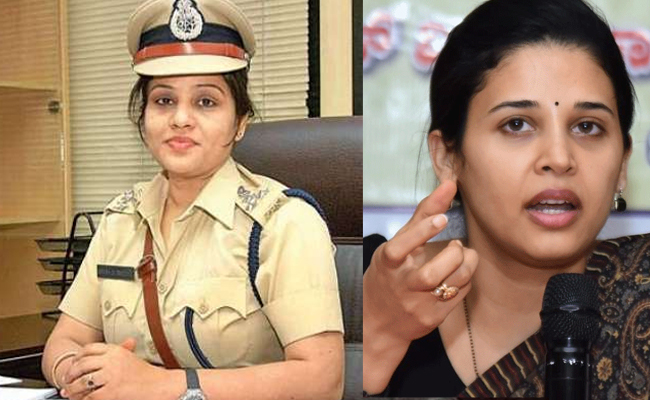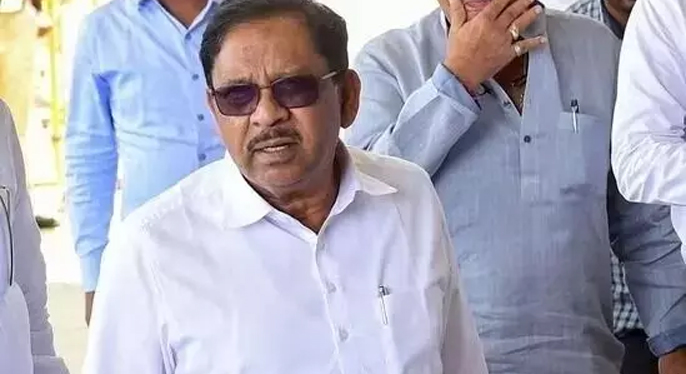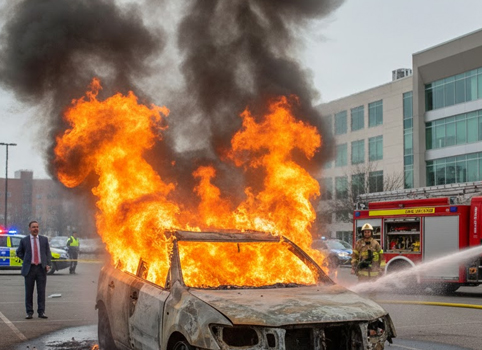Bangalore: The Karnataka High Court has declined to quash the defamation complaint brought against IPS officer D Roopa by IAS Officer Rohini Sindhuri, who accused Roopa of disseminating defamatory content against her.
Justice Sachin Shankar Magadum dismissed Roopa's argument that the statements she made were in her official capacity and, therefore, the Magistrate erred in considering the private complaint for the offense under Section 499 of IPC without a sanction.
The court stated, "The Doctrine of state humanity covers all the acts performed by a public servant in exercise of function of the Government and not where acts are done by the public servant for her or his own benefit or pleasure and may be under the power of authority, such acts will not fall under the immunity principles."
It further elaborated, "The scope of operation of Section 197 of Cr.P.C. is restricted to only those acts or omissions which are done by a public servant in discharge of official duty."
The case revolves around a private complaint filed by the IAS officer, who alleged that the IPS officer Roopa shared her photos on Facebook and intentionally posted defamatory comments and allegations on a private Facebook account. Sindhuri also claimed that Roopa made statements to the media questioning her character and conduct, both professionally and personally.
The IAS officer asserted that these posts, comments, and statements were false, malicious, and intended to harm her reputation and thereby filed the complaint under Section 500 of IPC, seeking Rs.1,00,00,000 as compensation.
Roopa's counsel argued that the complaint did not meet the essential elements of an offense under Section 499 IPC since her statements fell under exceptions 2, 3, and 9 of Section 499. It was further argued that the allegations against the petitioner were based on reports and publications already in the public domain and related to public questions, making them exempt from Section 499.
The respondent's counsel countered that there was sufficient prima facie material to proceed against the petitioner. They argued that the case should go to trial, as whether the statements fall under the exceptions or were made in good faith is a matter for a full-fledged trial to determine.
The court examined the prima facie material presented by the complainant and found that this material demonstrated that the petitioner was to face a criminal trial. It notes that whether the posts and statements fall under exceptions or were made in good faith is a matter for trial, and the burden is on the accused to demonstrate this.
"If the statements posted on a private account as well as the statements made before the print media are examined, I am more than satisfied that petitioner/accused is bound to face a criminal trial. The question as to whether the posts made on a Facebook account and the statements made before the print media fall under exceptions is a matter of trial. In order to claim good faith, the accused must show that before making the alleged imputation, she has made an inquiry with due care and attention. In order to establish good faith and bonafides, it has to be seen that the circumstances under which imputations were made and published. It is only during a full-fledged trial, it can be ascertained as to whether imputations were made with any malice.”
The Court added, "The posts made on a private account of Facebook and also comments and allegations on her Facebook page as well as before the print media are motivated and deliberate besides being totally false and mischievous only to belittle the complainant in the eyes of the public at large and in particular before her superiors, colleagues, and subordinates."
Regarding the issue of sanction, the court found that the acts complained of by the complainant did not relate to the official duties of the petitioner as a public servant, and thus, the petitioner is not entitled to protection under Section 197 of Cr.P.C. The court concluded that this was not a case where interference by the court was warranted.
“The posts and statements given to the print media prima facie not being part of her official duties, I am of the view that she is not entitled to protection under Section 197 of Cr.P.C. The acts complained by the respondent/complainant by filing a private complaint prima facie do not indicate that these allegations hinge on the official duties as a public servant and therefore, petitioner cannot claim protection under Section 197 of Cr.P.C.”
The bench added, "The above-culled-out portions which are part of a prima facie material which were produced by the respondent/complainant by recording a sworn statement prima facie demonstrate that these imputations are obviously not made in discharge of her duty."
It also highlighted that the burden of proof was on the accused to show that his/her case comes under any of the exceptions and that he/she is not liable for defamation. Therefore, having taken cognizance of prima facie material, the Court was not inclined to grant any reliefs as claimed in the petition.
Accordingly, the court dismissed the petitioner's request to quash the proceedings, stating that there was sufficient prima facie material to proceed to trial.
Let the Truth be known. If you read VB and like VB, please be a VB Supporter and Help us deliver the Truth to one and all.
Kolkata(PTI): Leader of Opposition in West Bengal assembly, Suvendu Adhikari, on Saturday wrote to Governor C V Ananda Bose, seeking an independent judicial inquiry into “administrative incompetence” and “public humiliation of citizens”at the Salt Lake Stadium here during an event featuring football legend Lionel Messi.
In his letter, Adhikari alleged that the stadium, built with public funds, was converted into a “private durbar” for political elites, resulting in humiliation and harassment of spectators who had purchased tickets.
"I write this communication with a profound sense of anguish, constitutional alarm, and moral urgency. What unfolded at the Yuva Bharati Krirangan was not merely an episode of administrative incompetence, it was a public humiliation of citizens, a grotesque exhibition of unrestrained political privilege, and a direct assault on the rule of law in the presence of thousands of witnesses," Adhikari asserted.
He claimed that football fans were denied basic amenities and dignified viewing due to unchecked VIP presence, obstruction of sightlines, and arbitrary restrictions.
Chaos unfolded at the Salt Lake Stadium on Saturday, after spectators resorted to vandalism on failing to catch a glimpse of Messi, alleging gross mismanagement by the organisers and obstruction of views by VIPs.
Police arrested the event’s prime organiser, Satadru Datta, while Chief Minister Mamata Banerjee announced the constitution of a high-level inquiry committee to probe the incident.
Adhikari, in his letter, held the sports department, police authorities and the minister-in-charge of sports and youth affairs responsible, alleging that the situation was “enabled, if not orchestrated”, by the state administration.
He claimed that the conduct of the authorities reflected indifference to public accountability and misuse of power.
The senior BJP leader also took exception to the inquiry committee announced by the chief minister, contending that it lacked independence and credibility.
Adhikari said the panel is headed by Justice (Retd) Asim Ray, who currently holds a statutory post under the administrative control of the state government, and includes senior bureaucrats whose actions are under scrutiny.
"This committee is structurally compromised, legally infirm, and morally indefensible," he said in the letter to the governor.
Adhikari urged Bose to exercise his constitutional authority to order the formation of a truly independent inquiry committee.
He proposed that the committee be headed by a sitting judge of the Calcutta High Court, and assisted by persons of unimpeachable integrity with no institutional, administrative or political affiliation with the state government.
“The issue transcends football, politics, and personalities. It concerns the right of citizens to be treated with dignity, the obligation of the state to act as trustee of public interest, and the duty of constitutional authorities to intervene when the executive becomes a law unto itself,” Adhikari said.
Later, speaking to reporters, he accused the state government of mismanaging the situation at Salt Lake Stadium, and demanded the resignation of the CM.
Adhikari said all those responsible for the fiasco should be arrested, and spectators must be provided refunds.
He alleged that senior Trinamool Congress leaders and their associates crowded around Messi, leaving thousands of fans at the stadium deprived of catching a clear glimpse of the football star.
“This was a case of misuse of power at the cost of ordinary citizens. The chief minister must take moral responsibility, those responsible for the incident should be arrested, and every fan who was cheated must get a refund,” Adhikari asserted.
He added that public anger would not subside without accountability and corrective action.





